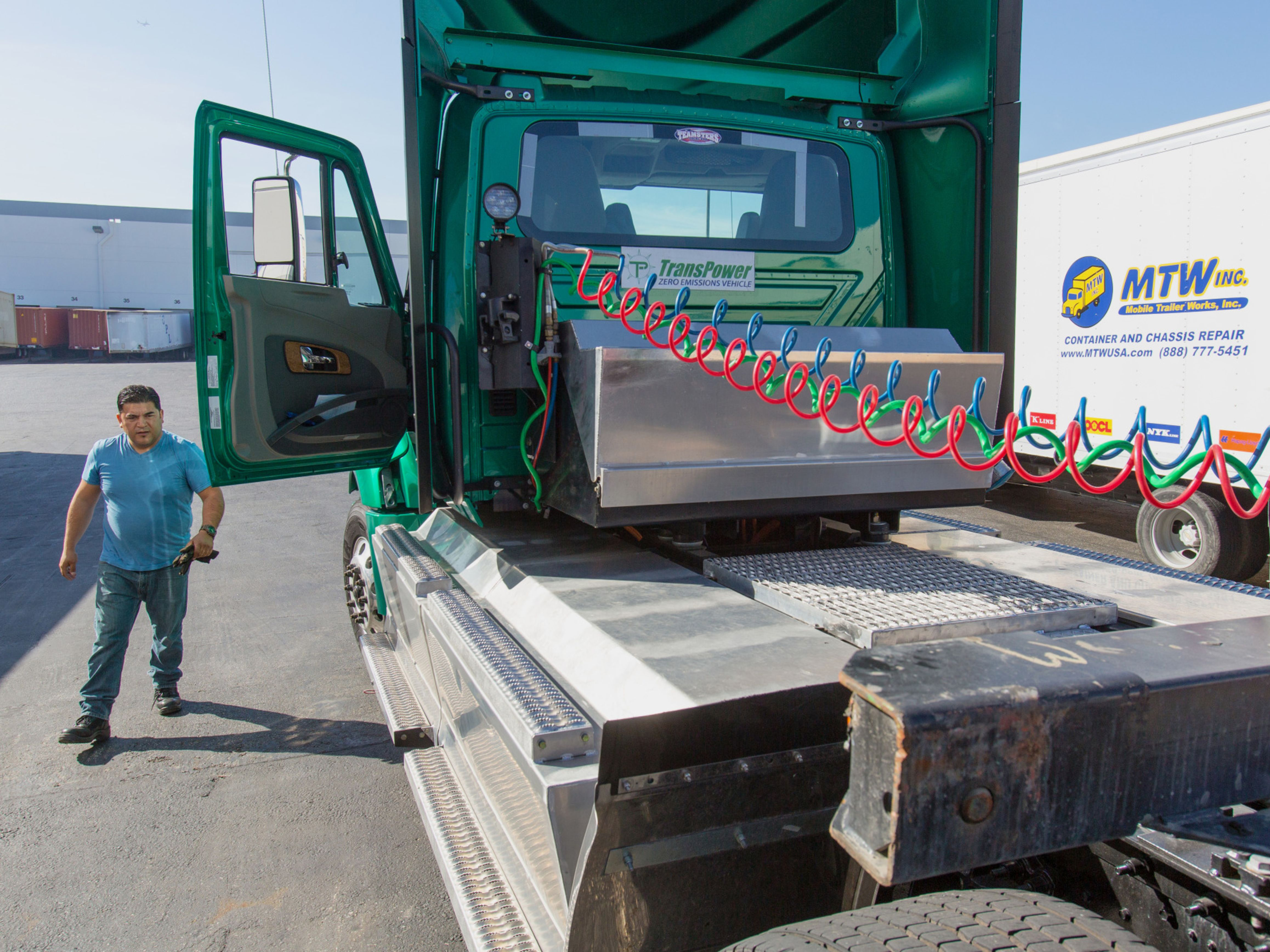
Visit Our Sponsors |
|
|
|
|
|
|
|
|
|
|
|
|
|
|
|
|
|
|
|
|
|
|
|
|
|
|
|
|
|
|
|
|
|
|
|
|
|
|
|
|
|
|
|
|
|
|
|
|
|
|
|
|
|
|
|
|

It was a budding rivalry that didn’t last long before scandal brought one of them down. Two years ago, Nikola founder Trevor Milton was very clearly on Tesla CEO Elon Musk’s radar.
The week after Nikola completed its merger with a special purpose acquisition company and immediately shot up in value on the Nasdaq, Musk fired off an email to employees declaring it was “time to go all out” getting Tesla’s Semi into production. But instead of fuel cells and follow-through, there were fraud charges and deferments. Milton is a month away from going to trial, having been accused of lying to investors. Nikola has only delivered a few dozen battery-electric trucks, and the Tesla Semi is still missing.
Several developments this week suggest the competition could be back on. On Sunday, the Senate passed the Inflation Reduction Act, which carves out a slice of roughly $374 billion in climate and energy spending for cleaner commercial vehicles. A few days later, Musk tweeted Tesla would start shipping a 500-mile range Semi Truck this year, and Nikola named a new chief executive officer with decades of experience in mass-producing vehicles.
After President Joe Biden’s landmark bill passes, the federal government will start doling out up to $40,000 tax credits per heavy-duty truck purchase. While these big rigs can cost upwards of $300,000, that’s a serious incentive, especially considering the vouchers that states including California and New York are offering.
Musk claimed in December last year that Tesla wasn’t thinking at all about Biden’s signature economic package and questioned the need for more government subsidies. The apparent acceleration of the Semi — the CEO said just a few months ago that it would be in production next year — on the heels of the Senate passing this bill seems perhaps more than just coincidental.
Nikola’s new boss will be Michael Lohscheller, who used to run General Motors’s Opel division when Steve Girsky, now the truckmaker’s chairman, was running GM’s European operations. The shift to new management may help the company ramp up production, overcome reputational issues and win over fleet buyers.
Electric trucks aren’t as sexy as passenger cars. But if climate change is the raison d'être of the incentives in this bill, freight and trucking can’t be ignored. These vehicles account for more than 20% of fuel consumed in the U.S., according to the Bureau of Transportation Statistics. With Amazon, Walmart and other retailers sending more of their wares by truck, fuel consumption for shipping is growing all the time. It’s expected to account for 40% of the increase in demand for oil in the next decade, according to the International Energy Agency.
As will be the case with passenger cars, trucks will need to meet tough requirements to be eligible for incentives. Battery materials need to come from countries the U.S. has free trade agreements with and not nations of concern, such as China. While it’s unclear how many will meet the criteria, battery-powered big rigs are definitely coming.
In March, shipping giant Maersk said it will buy 110 electric Class 8 rigs from Volvo Trucks. Nikola plans to deliver at least 300 trucks this year, and Daimler Truck also has electric models on the road.
Delivery vans will qualify for government perks, too. GM’s BrightDrop unit has handed over 150 electric delivery vans to FedEx. Ted Cannis, CEO of Ford Pro, the automaker’s commercial vehicle operation, said the company is still digesting all 700-plus pages of the bill, but sees potential for it to jumpstart business.
“It’s generally moving in the right direction for commercial and retail,” Cannis said Thursday in a roundtable with Bloomberg reporters and editors. “It looks promising.”
RELATED CONTENT
RELATED VIDEOS
Timely, incisive articles delivered directly to your inbox.







